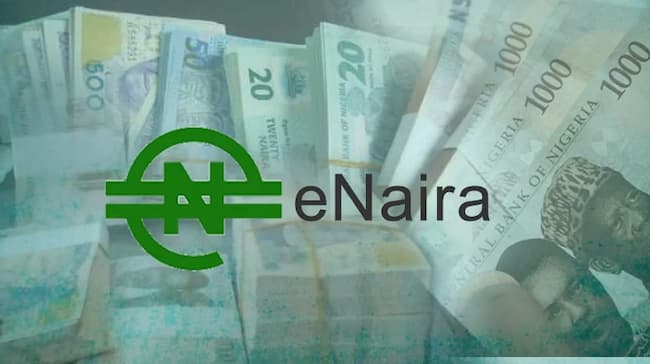At the unveiling of the Central Bank of Nigeria’s (CBN) digital currency, eNaira, President Muhammadu Buhari, said that the payment system provides financial institutions with high-value and time-critical payment services.
Nigeria’s adoption of a digital currency makes it the first in Africa to do so, with a close “monitoring” of the system in its early stages, according to Buhari.
He said that the eNaira was ranked among the “top ten” globally, and “certainly the best in Africa.”
Buhari said, “Needless to add, close monitoring and close supervision will be necessary in the early stages if implementation to study the effect of eNaira on the economy as a whole.
“It is on the basis of this that the CBN sought and received my approval to explore issuing Nigeria’s own CBDC, named the eNaira.
“This move was underpinned by the fact that the CBN has been a leading innovator in the form of money they produce, and in the payment services they deploy for efficient transactions.
“They have invested heavily in creating a payment system that is ranked in the top ten in the world and certainly the best in Africa.
“This payment system now provides high‐value and time‐critical payment services to financial institutions, and ultimately serves as the backbone for every electronic payment in Nigeria.”
READ ALSO: How To Create An Account On eNaira, Set Up Your Profile
“While the journey to create a digital currency for Nigeria began sometime in 2017, work intensified over the past several months with several brainstorming exercises, deployment of technical partners and advisers.
“Collaboration with the Ministry of Communication and Digital Economy and its sister agencies like the Nigerian Communications Commission, integration of banking softwares across the country and painstaking tests to ensure the robustness, safety and scalability of the CBDC System.
“Let me note that aside from the global trend to create digital currencies, we believe that there are Nigeria-specific benefits that cut across different sectors of, and concerns of the economy.
“The use of CBDCs can help move many more people and businesses from the informal into the formal sector, thereby increasing the tax base of the country.
“Alongside digital innovations, CBDCs can foster economic growth through better economic activities. Indeed, some estimates indicate that the adoption of CBDC and its underlying technology, called blockchain, can increase Nigeria’s GDP by 29 billion dollars over the next 10 years.”













